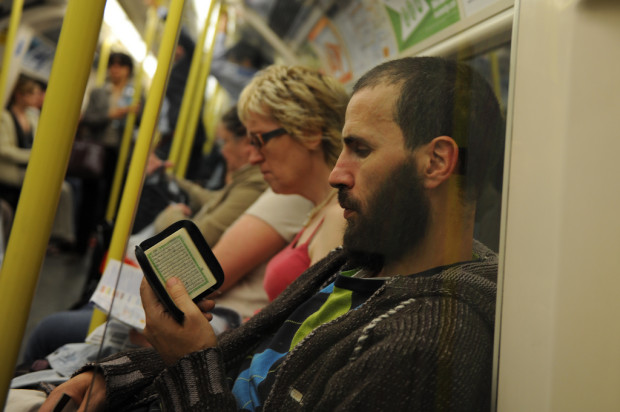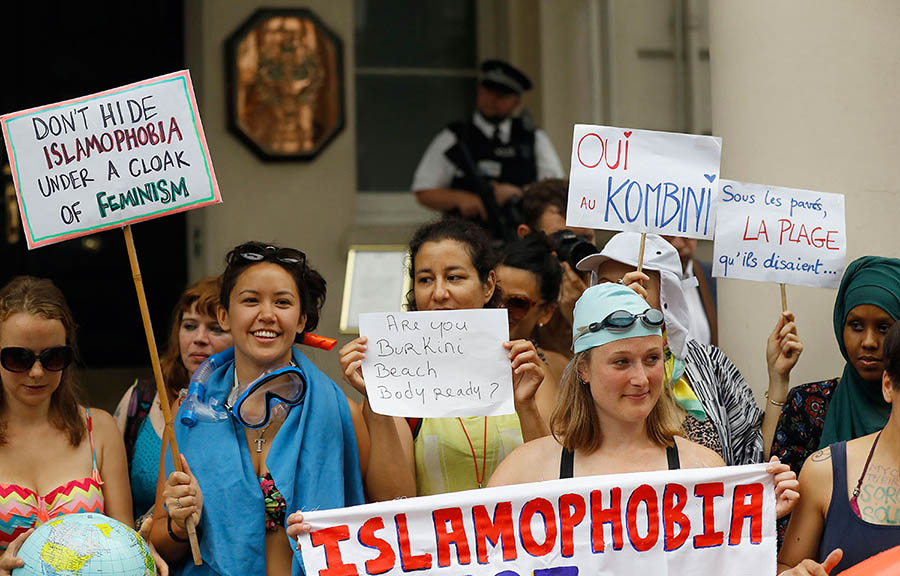The broad reality comprised by Islamophobia, as well as its recent acknowledgement, has usually resulted in difficulties to define the problem. As Miqdaad Versi, secretary general of the Muslim Council of Britain, explains in this article, this is frequently used by right wing movements or characters in benefit of their arguments. However, as the author arguments, not only they are not entitled to define what Islamophobia is, but the difficulties to conceptualize should not hide the harsh reality there is behind it.
Islamophobia is a fiction to shut down debate,” railed Melanie Phillips in The Times. Phillips’ lament was a doubling down of her appearance on BBC Sunday Politics earlier in the week where she dismissed Islamophobia by complaining that “any criticism of the Muslim community is considered Islamophobic”.
Others have also challenged the use of the term. Defending his bigotry, the far-right activist Tommy Robinson declared: “I’m not talking about Muslims, I’m talking about Islam.” Once again, we see Islamophobia being dismissed by deploying “straw man” arguments that refer to a shutting down of debate.
It is quite astonishing to see this deliberate contortion of Islamophobia to undermine real concerns about bigotry through these semantic games. While writers such as Rod Liddle and Brendan O’Neil are natural bedfellows to Phillips, the unfortunate reality is that even the licence-payer-funded BBC has provided a platform to “debate” the very existence of Islamophobia many times.
Thank you @DawnHFoster for standing up to Melanie Phillips’ disgusting semantic excuses for #Islamophobia on @daily_politics. People use the same excuse for anti-semitism and it is appalling in both cases. pic.twitter.com/aI4daec4hs
— Miqdaad Versi (@miqdaad) May 6, 2018
Conceptualization problems
Yet while Phillips was rightly criticised for her bigotry by Jewish and Muslim groups, well-meaning liberals have been asking about the specific scope of Islamophobia.
Such terms rarely are perfect, nor do they necessarily need to be – different wording makes little impact on the average bigot.
But let us consider the term “antisemitism”, for example. Literally, it would refer to bigotry against Semites (defined by the Cambridge Dictionary as the Arabs and Jews of the Middle East). However, its meaning is defined and well understood to be bigotry against Jews in particular. Furthermore, the definition goes beyond simple hate and includes antisemitic tropes still commonplace in many sections of our society. If someone were to try to claim that an Arab could not be antisemitic because an Arab is a Semite, they would roundly and rightly be condemned as playing semantic games.
Most people of good faith understand that Islamophobia as a concept or social phenomenon also goes beyond a literalist dictionary definition.
Similarly, most people of good faith understand that Islamophobia as a concept or social phenomenon also goes beyond a literalist dictionary definition.
The term was first popularised by the Runnymede Trust in a report published in 1997. The term had emerged following the need for a specific word to focus minds and lead to substantive action against growing anti-Muslim prejudice. It was initially defined as “unfounded hostility towards Muslims, and therefore fear or dislike of all or most Muslims” with the “phobia” element based on the common “xenophobia” framework in a similar way to homophobia.
From the outset and in that Runnymede report, it has always been made clear that Islamophobia does not encompass disagreement, criticism or even condemnation of Islam. It is complete hogwash to pretend otherwise.
Yet, in order to cast doubt on the premise of the term, detractors consistently try to conflate critique of the faith with the broader hostility towards the people of that faith.
It must be noted, however, that there are some who hide behind “criticism of Islam” as they attempt to legitimise their bigotry, such as author Douglas Murray’s theory that less Islam is a solution to terrorism. While using the term “Islam”, what that implies is that we need fewer Muslims to keep British shores safe. It is difficult to understand how such a goal could be achieved other than through some form of ethnic cleansing or mass deportation. This is not “criticism of Islam” and falls well within the scope of Islamophobia.
Yet, in order to cast doubt on the premise of the term, detractors consistently try to conflate critique of the faith with the broader hostility towards the people of that faith.
In order to placate those bullies wishing to delegitimise claims of Islamophobia, there are some who are now naively providing cover for this type of bigotry by calling for the use of the term “anti-Muslim hatred” instead, seemingly to ensure action against Islamophobia is not derailed by a discussion on definition.
However, Islamophobia goes far beyond mere hatred. As the latest Runnymede report states: “Referring only to ‘anti-Muslim hate’ (or even ‘anti-Muslim prejudice and discrimination’) doesn’t fully capture the widespread (or structural) ways racial inequalities persist. It may also get things back to front: prejudicial attitudes about a group develop to justify the economic or political disadvantages experienced by that group.”
The fact that 31% of young children think Muslims are taking over England; the fact that 37% of Brits would support a political party that would reduce the number of Muslims in the UK; the fact that Muslim men are 76% less likely to be employed than their white Christian counterparts; and the fact that half the British Muslim population live in the 10% most deprived areas in the UK. None of these can be constrained to hatred alone – but the contributing factors all fit under this broader umbrella of Islamophobia.
Furthermore, Islamophobia as a term has become well established with this broader meaning of anti-Muslim racism. Its usage spans across the globe beyond academics and researchers, to mainstream communities, police and media, including our own prime minister, all of whom understand what the term means.
Islamophobia is real, normalised in many sections of our society and appears to be on the rise in all its forms. Rather than delegitimising the term, we should call out if it is misused and more importantly, push our government to do something about it.
In the end, the idea that those who engage in Islamophobia or deny its existence should be driving our word choice is ludicrous, and changing the term will not stop their bigotry.
For those obsessed with the word, it appears they care far more about semantics than real-world hatred, violence and racism. They seem to think words can hide their own blatant bigotry. They can’t. We see you.
Source: The Guardian

















No Comments